Meet the farmer who found happiness in an ancestral way of life
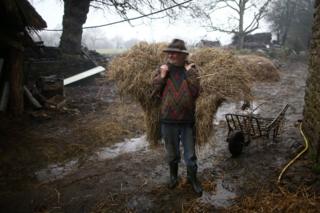 REUTERS
REUTERS
Reuters photographer Stephane Mahe spent seven days with Jean-Bernard and his partner Laurence in Riec-sur-Belon, a corner of southern Brittany on France's west coast, to capture scenes of their unique way of living.
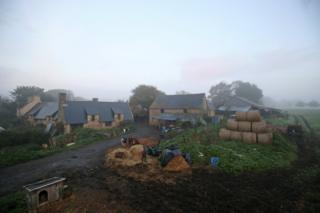 REUTERS
REUTERS
Jean-Bernard, 70, describes himself as a "happy outsider". He and Laurence milk eight cows by hand, grind flour and collect manure to fertilise the crops that feed his livestock. Jean-Bernard chooses to sell his pork, veal and butter directly to visitors to his farm rather than engage with large supermarkets.
Despite his produce being organic, he has even avoided the trend of selling at farmers' markets, where organic food is hugely popular.
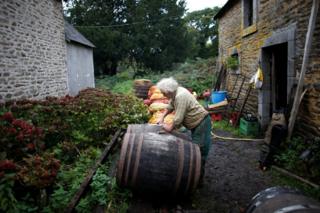 REUTERS
REUTERS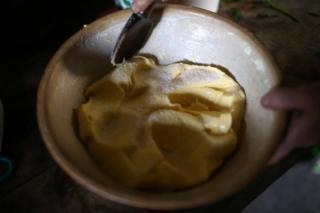 REUTERS
REUTERS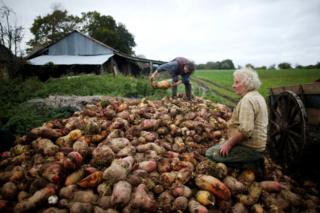 REUTERS
REUTERS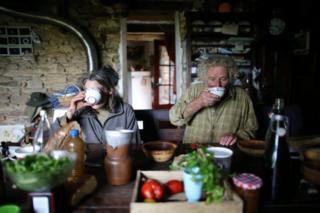 REUTERS
REUTERS
Farm machinery revolutionised French agriculture after World War Two, but Jean-Bernard chose to continue using the traditional manual farming methods.
As the country modernised around him, he continued to plough fields with oxen and has no TV, internet, running hot water or a car.
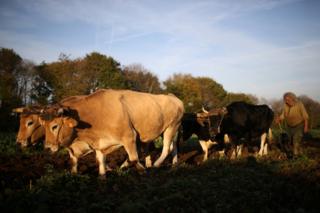 REUTERS
REUTERS
"I've always managed by myself - I've never been rich but what do I care?" Jean-Bernard told photographer Mahe.
"Farmers today have a lot more land and animals than me, but they're not necessarily happier. They face a lot of constraints."
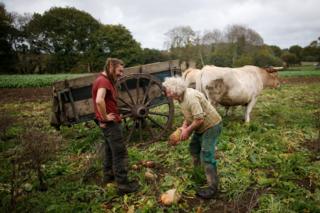 REUTERS
REUTERS
He does not oppose modern farmers and their methods.
"People criticise and it's good to criticise, but you have to know why it came about. Chemicals were a liberation for farmers. Can you imagine? You apply some glyphosate and you don't have any more weeds. Otherwise you have to do it with the hoe."
 REUTERS
REUTERS
Jean-Bernard has had to make some concessions to modernity as he has grown older, investing in two tractors to help with the heavy lifting of hay.
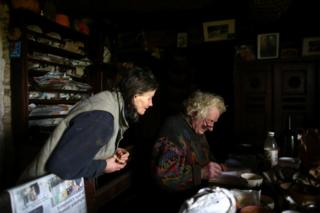 REUTERS
REUTERS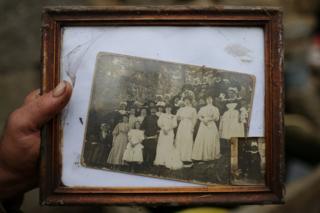 REUTERS
REUTERS
Jean-Bernard wants to donate his farm to a willing successor, rather than sell it. But he admits his traditional methods may not be adopted by the future owner.
"I lived in a time when you could set up easily," he says. "You just had to have some land and you could produce."
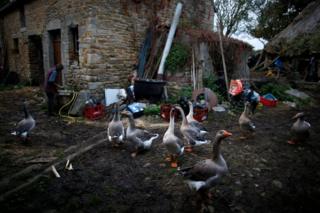 REUTERS
REUTERS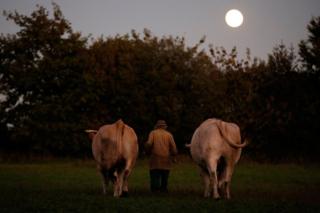 REUTERS
REUTERS
Photos by Stephane Mahe.
Comments
Post a Comment